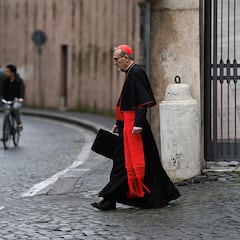Understanding the Pope's Salary: Myths, Realities, and Church Finances
Curiosity about the pope salary often sparks fascination and speculation. How much does the leader of the Catholic Church actually earn? Does the pope receive a paycheck like other high-profile leaders? Let’s explore the facts behind the salary of the pope, how it relates to Vatican finances, and how it compares to other officials in the Church hierarchy.

Does the Pope Receive a Salary?
Contrary to popular belief, the pope does not earn a conventional salary. As head of the Catholic Church, the pope’s needs—such as residence, meals, and travel—are covered by the Vatican. While he has full access to the resources needed for his spiritual and administrative duties, he personally does not draw a monthly paycheck. This tradition underscores the pope’s role as a spiritual leader rather than a corporate executive. Over the years, popes have emphasized humility, with Pope Francis opting for a simple lifestyle. For more detail on compensation structures within the Church, take a look at how much a Catholic Church cardinal makes.
Comparing Papal and Cardinal Salaries
While cardinals do receive salaries—especially those with governing roles in the Roman Curia—the pope’s compensation is unique. Cardinals working at the Vatican have earned between $3,240 and $5,400 per month, with recent reforms even reducing their income by 10%. These reductions were part of Pope Francis’ efforts to promote economic transparency and austerity after challenges like the pandemic. Expenses such as housing and healthcare are often covered for clergy as well. For more insights into cardinals’ compensation and recent papal reforms, explore the AS USA guide to cardinal salaries.
Papal Elections and Leadership Roles
The pope, elected by the College of Cardinals during a conclave, assumes responsibilities that are spiritual and symbolic rather than monetary. The process of becoming pope is rigorous, requiring a two-thirds majority among cardinals. For real-time coverage and insights on the latest conclave, check out CNN’s live update on papal selection.
Managing Vatican Finances
The Vatican’s finances are rooted in donations, tourism, and other sources. Expenses are carefully managed, with recent years seeing reforms for greater transparency. The focus remains on using Church resources for spiritual, charitable, and administrative purposes, rather than personal wealth for Church leaders.
Conclusion: Papal Service over Salary
In summary, the pope salary is better viewed as a matter of service, tradition, and stewardship, not financial reward. The Catholic Church structure ensures that its leader’s needs are met, but without personal gain. For further reading on Vatican leaders and papal responsibilities, visit this New York Times report. Understanding the financial structure of the Catholic Church offers insight into its focus on faith, humility, and global mission.